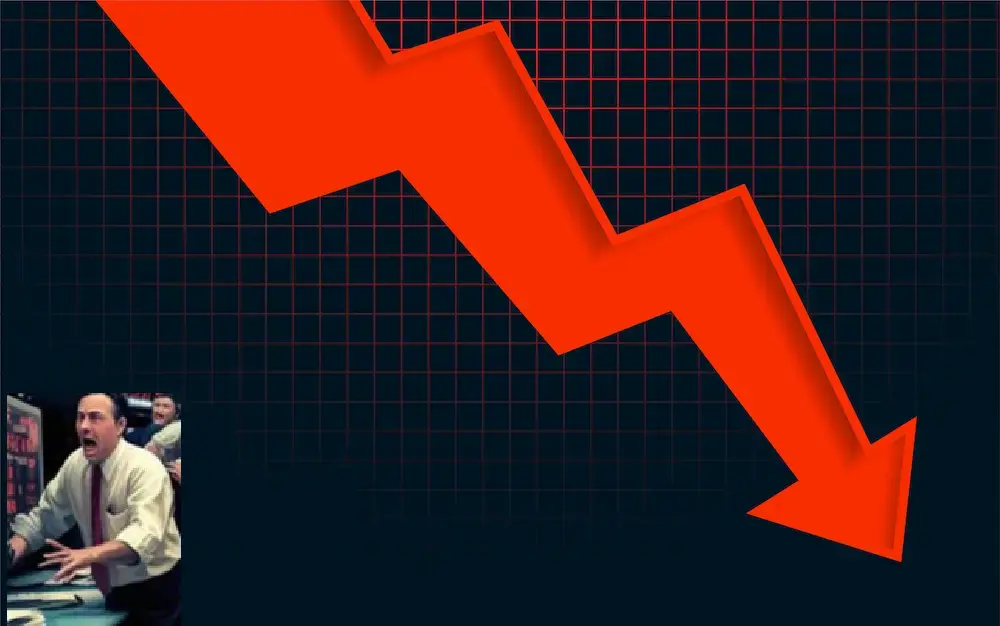
Despite the signing of the India-UK Free Trade Agreement, Indian stock markets plunged on July 25, 2025
The Historic India-UK FTA: A Quick Recap
Stock Market Shock – On July 24, 2025, Prime Minister Narendra Modi and UK Prime Minister Keir Starmer signed the India–UK Free Trade Agreement, a sweeping pact covering:
- 99% duty-free access for Indian exports to the UK
- Major tariff cuts on textiles, gems, leather, pharma, and agri products
- Reduced duties on UK exports like whisky, automobiles, and electronics
- Enhanced labour mobility, digital trade, and green tech cooperation
The deal is projected to boost bilateral trade by $34 billion annually and double total trade to $120 billion by 2030.
The Market Meltdown: What Happened on July 25?
Despite the diplomatic triumph, Indian equity markets plunged nearly 1%:
- Sensex dropped 582.98 points to 81,601.19
- Nifty 50 fell 193.60 points to 24,868.50
- Over 2,200 stocks declined on the BSE, with only 547 advancing
The sell-off was broad-based, affecting financials, IT, FMCG, and consumer durables. Even sectors expected to benefit from the FTA saw muted or negative movement.
Why the Disconnect? 5 Key Reasons Behind the Bloodbath
1. Weak Earnings from Financial Giants
- Bajaj Finance tanked 5-6%, despite posting a profit beat
- Concerns over MSME loan stress and asset quality triggered panic selling
- Bajaj Finserv, HDFC Bank, and ICICI Bank also declined sharply
2. Persistent FII Outflows
- Foreign Institutional Investors (FIIs) sold ₹11,572 crore worth of equities in just four sessions
- Global risk-off sentiment and valuation concerns drove the exodus
3. Muted Global Cues
- Asian markets like Nikkei, Hang Seng, and Straits Times traded in the red
- Uncertainty around US-China trade talks and US–India negotiations added to investor anxiety
4. Profit Booking in Overvalued Smallcaps
- Analysts flagged excessive valuations in small and mid-cap stocks
- The broader market saw sharper corrections than headline indices
5. Lack of Immediate Triggers from the FTA
- While the FTA is a long-term positive, it lacks short-term catalysts
- Investors were hoping for fiscal stimulus or monetary easing, which didn’t materialize
Sectoral Snapshot: Winners vs. Losers
| Sector | Impact on July 25 | Notes |
| Financials | 🔻 Major decline | Bajaj Finance led the fall |
| IT & FMCG | 🔻 Weak sentiment | Infosys, Nestle dragged indices |
| Textiles & Pharma | 🔼 Mild gains | Trident, Sun Pharma showed resilience |
| Energy & Auto | 🔻 Mixed signals | Tata Motors, PowerGrid declined |
| Marine & Agri | 🔼 Optimism ahead | Analysts bullish on Avanti Feeds, Vardhman Textiles |
Stocks to Watch Post-FTA
Despite the sell-off, analysts remain bullish on FTA-linked sectors:
- Textiles: Vardhman Textiles, Arvind, Welspun India
- Gems & Jewellery: Titan, Kalyan Jewellers
- Leather & Footwear: Relaxo, Bata India
- Marine Exports: Avanti Feeds
- Auto & Engineering: Tata Motors, Bharat Forge, Bosch India
These companies stand to gain from zero-duty access, cost advantages, and expanded UK market share.
Investor Sentiment: What Analysts Are Saying
“Despite the FTA announcement, weak earnings from Bajaj Finance, IT and consumer stocks have made investors nervous.”
– Hardik Matalia, Choice Equity Broking
“The near-term market construct has turned weak. Sustained FII selling and correction in broader markets-especially overvalued smallcaps-will likely keep pressure on indices.”
– Dr. V.K. Vijayakumar, Geojit Financial Services
“The India-UK FTA is a long-term positive, but traders are focused on earnings and global cues right now.”
– Prashanth Tapse, Mehta Equities
What Should Investors Do?
Short-Term Strategy
- Focus on defensive sectors like pharma and insurance
- Avoid overexposed smallcaps and high-beta stocks
- Watch for August 6 RBI policy meeting for rate guidance
Long-Term Outlook
- Accumulate FTA beneficiaries on dips
- Monitor UK import trends and Indian export volumes
- Stay updated on US-India trade talks and global macro shifts
Final Thoughts: Optimism Meets Reality
The India-UK FTA is a strategic and economic milestone, but markets are driven by earnings, liquidity, and sentiment. While the long-term story remains bullish, short-term volatility is a reminder that policy wins don’t always translate into instant market gains.
As Dalal Street recalibrates, investors must balance macro optimism with micro caution-because in the world of finance, timing is everything.
FAQ
Why did the stock market fall despite the India–UK FTA?
Weak earnings, FII outflows, global uncertainty, and lack of short-term triggers outweighed the optimism from the trade deal.
Which sectors will benefit from the FTA?
Textiles, gems & jewellery, leather, marine exports, auto components, and pharmaceuticals are expected to gain from duty-free access.
Is this a good time to invest in FTA-linked stocks?
Yes, selectively. Analysts recommend accumulating quality export-oriented stocks on dips, especially those with UK exposure.
What are the risks ahead?
Continued FII selling, weak global cues, and unresolved US–India trade negotiations could keep markets volatile.
Will the FTA impact India’s GDP?
Yes. The deal is projected to boost India’s GDP by 0.06% annually, with long-term gains in trade, employment, and investment.
Stay updated with the latest news on Rapido Updates. Keep yourself updated with The World, India News, Entertainment, Market, Automobile, Gadgets, Sports, and many more